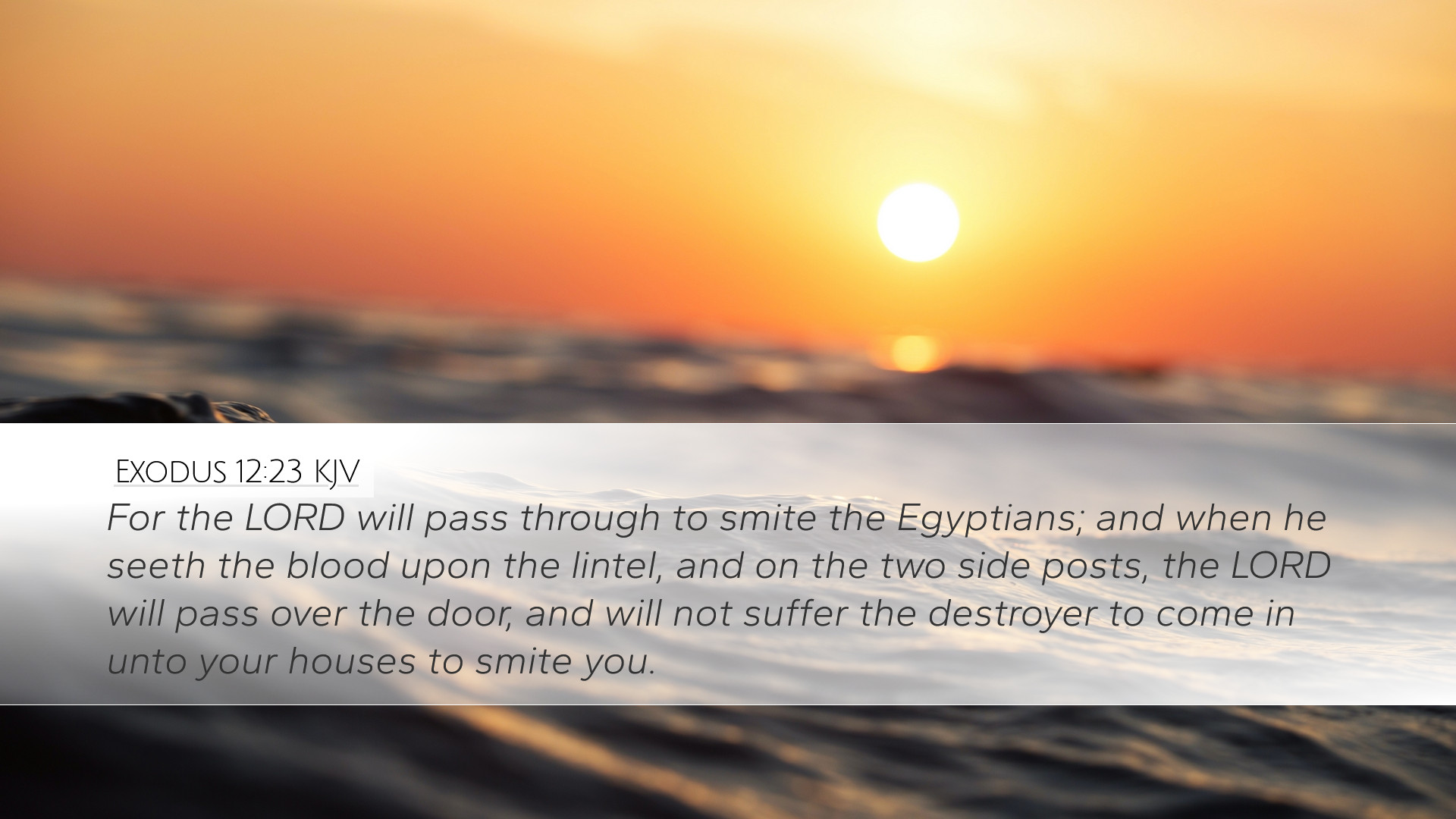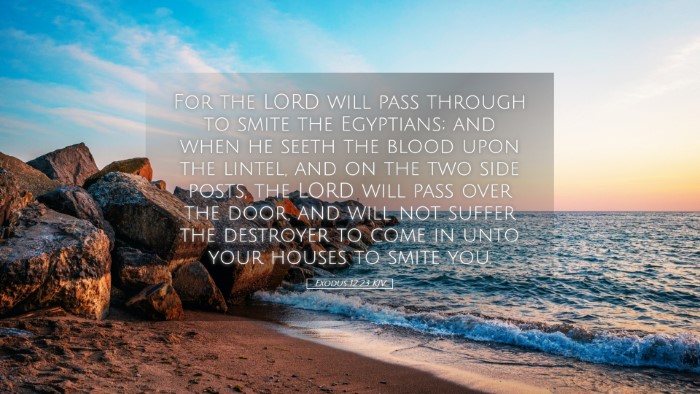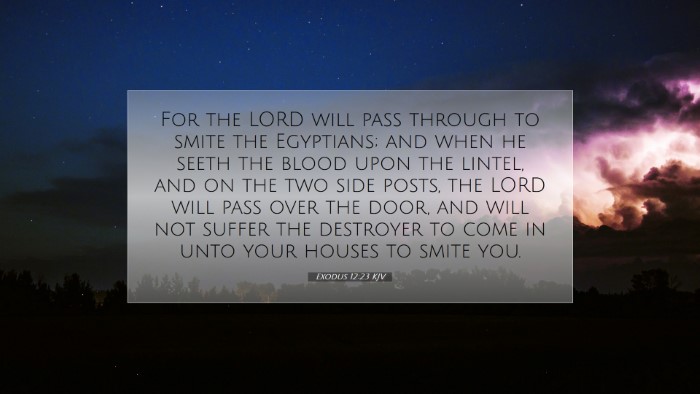Exodus 12:23 - Analysis and Commentary
Verse Reference: Exodus 12:23 - "For the Lord will pass through to strike the Egyptians; and when He sees the blood on the lintel and on the two doorposts, the Lord will pass over the door and not allow the destroyer to come into your houses to strike you."
Introduction
This verse is central to the Passover narrative, signifying God's protection over His people through the blood of the lamb. It marks a pivotal moment in Israel's history, flowing with theological significance for the Old and New Testaments.
The Context of Exodus 12
The events of Exodus 12 occur during the tenth plague in Egypt, where God decisively demonstrates His power over Pharaoh and the Egyptian gods. The protection offered through the blood signifies God's mercy amidst judgment.
Historical Context
Matthew Henry highlights that this chapter addresses God's covenant promise to deliver Israel from bondage. The command for the Israelites to mark their homes with the blood reflects a historical moment filled with both impending judgment and profound mercy.
The Plague Narrative
Albert Barnes emphasizes the seriousness of this plague, as it strikes at the heart of Egyptian worship and societal structure. The announced destruction of the firstborn is a direct challenge to Pharaoh's perceived divinity.
Theological Significance
This verse encapsulates several key theological themes:
- Divine Judgment and Mercy: God’s judgment against sin, represented by the death of the firstborn, contrasts sharply with His mercy extended to Israel through the blood of the lamb.
- The Blood as Atonement: Adam Clarke discusses how the blood signifies atonement, foreshadowing Christ’s sacrifice. The blood of the lamb saves from death, symbolizing eternal salvation through Christ.
- Faith in Action: The faith of the Israelites is demonstrated through their obedience in marking their doors. This act represents trust in God’s promise and His ability to deliver.
Exegesis of the Verse
In the verse, the portrayal of God 'passing through' indicates His active role in executing judgment. This is not a passive observation; it is a deliberate act of divine oversight.
The Destroyer
The mention of 'the destroyer' in the verse is critical. Some commentaries, particularly those by Albert Barnes, suggest that this entity represents an angel of death, acting on God's command, carrying out His justice. This connects with the overarching theme of God’s sovereignty over life and death.
The Significance of Blood
The blood on the lintel and doorposts serves as a profound symbol. It is a visible declaration of faith for both God and man. The instruction to use blood is not random but a pivotal aspect of God’s redemptive plan, echoed in the sacrificial system that follows in the Torah.
Application for Pastoral and Theological Reflection
For pastors and theologians, Exodus 12:23 can be a profound source for preaching on the concepts of salvation, judgment, and redemption.
Personal Reflection and Confession
Every believer is reminded to apply the blood of Christ to their lives, an act of faith that secures protection from spiritual death, much like the Israelites. The emphasis on marking the doorposts can symbolize personal commitment and public testimony of faith.
Covenant Theology
From a covenantal perspective, the story illustrates God's unyielding commitment to His people. The blood signifies the covenantal promises fulfilled through Christ, making this narrative rich with implications for understanding salvation history.
Conclusion
Exodus 12:23 is more than just a historical command; it is a profound theological statement of God’s merciful nature amidst judgment, the importance of faith and obedience, and a foreshadowing of Christ’s ultimate sacrifice. The interplay of judgment and mercy invites pastors and scholars alike to delve deeply into the narrative of salvation woven throughout Scripture.


